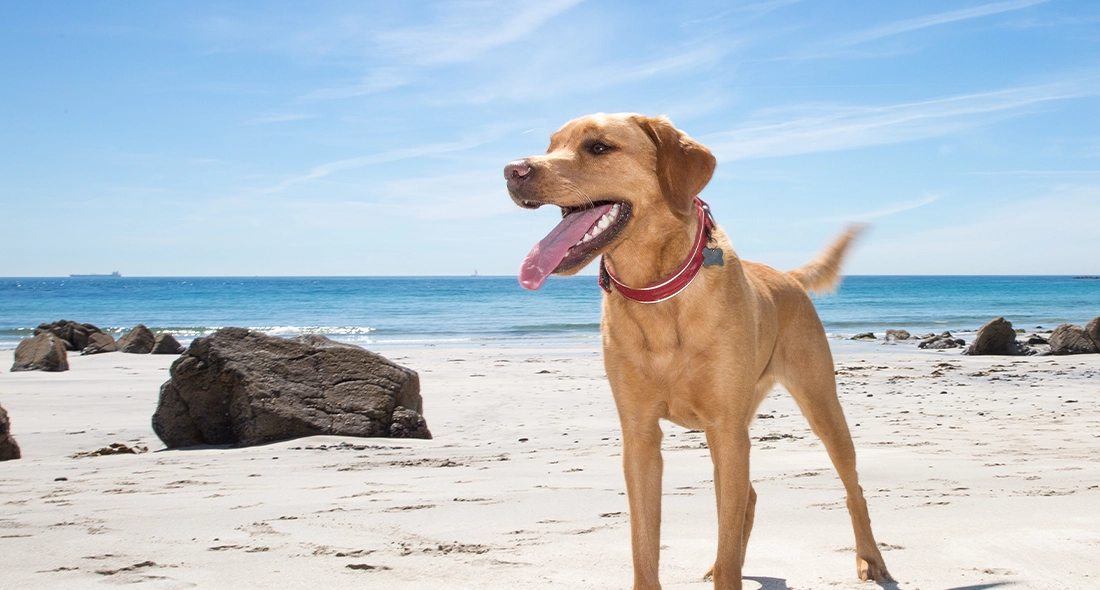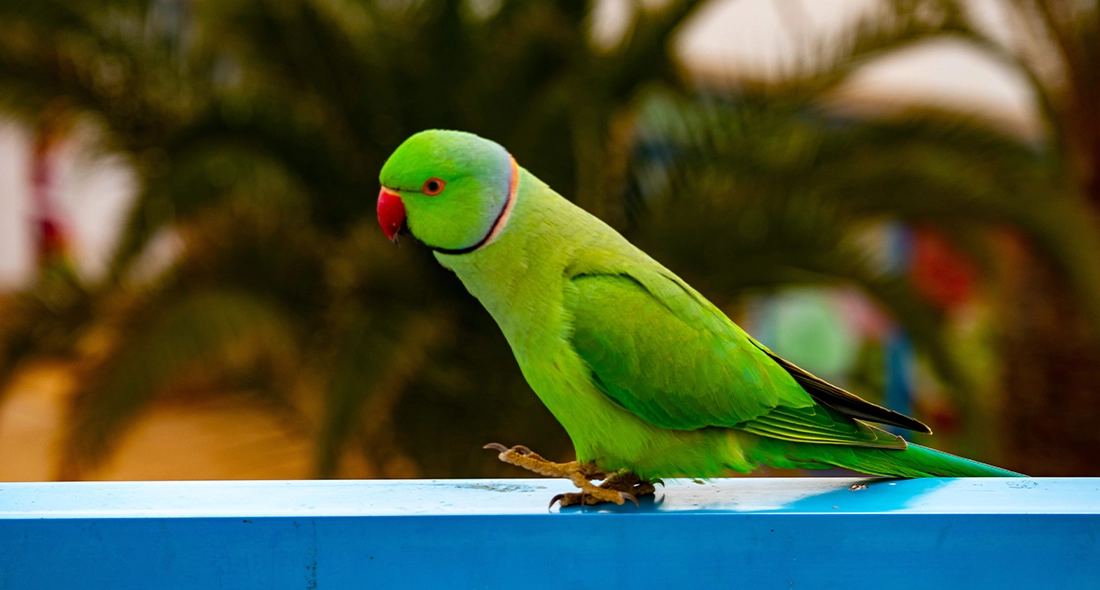Permit Requirement
Apply Now and Get Approved in No Time!

Our quick and easy permit application process is just a click away. Fill out our form in 5 minutes or less and get one step closer to achieving your goals. Say goodbye to paperwork headaches and hello to a hassle-free experience!

Trade Facilitation Unit - Cats and Dogs
The Bahamas currently has conditions to allow the importation of poultry and poultry products from various countries. Having conducted an import risk analysis (IRA) that considers quarantine risks that may be associated with the importation to The Bahamas of cats and dogs from any country, the IRA recommends that the importation of cats and dogs to The Bahamas could be permitted subject to compliance with Sanitary and Phytosanitary (SPS) measures to manage the quarantine risks of a range of significant diseases to a very low level. The IRA assessed all potential disease agents that may be introduced to The Bahamas via the importation of cats and dogs and SPS measures. These diseases include Rabies, Distemper, Hepatitis, Leptospirosis, Parvovirus, Adenovirus, Feline Leukemia, Feline Rhinotracheitis, Feline Calicivirus, Feline Panleukopenia and Feline Pneumonitis.
Based on this risk assessment The Bahamas Agricultural Health and Food Safety Authority (BAHFSA) has developed conditions of import for cats and dog consignments. They are outlined below. All consignments of cats and dogs must: 1. Meet the import conditions for cats and dogs in Appendix 1
APPENDIX 1

PLEASE READ CAREFULLY
Conditions for importation of Cats and Dogs
- If a country, zone, or compartment free from rabies according to World Organization for Animal Health (WOAH) wishes to export:
- Dogs,
- an international veterinary certificate (within forty-eight (48) hours of importation) is required and must attest that the dog(s):
- is/are more than six (6) months of age
- was/were actively immunized against the following diseases:
- Rabies
- Distemper,
- Hepatitis,
- Leptospirosis,
- Parvovirus, and
- Adenovirus
- is/are free of internal parasites as determined by a negative test result using a stool sample test.
- is/are free of external parasites.
- an international veterinary certificate (within forty-eight (48) hours of importation) is required and must attest that the dog(s):
- Cats,
- an international veterinary certificate (within forty-eight (48) hours of importation) is required and must attest that the cats(s):
- is/are more than six (6) months of age, since birth
- was/were actively immunized against the following diseases:
- Rabies
- Feline Leukemia,
- Feline Rhinotracheitis,
- Feline Calicivirus,
- Feline Panleukopenia and
- Feline Pneumonitis
- is/are free of internal parasites as determined by a negative faecal matter test result.
- is/are free of external parasites.
- an international veterinary certificate (within forty-eight (48) hours of importation) is required and must attest that the cats(s):
- Dogs,
- If a country, zone, or compartment not free from rabies according to the World Organization for Animal Health (WOAH) wishes to export:
- Dogs,
- an international veterinary certificate (within forty-eight (48) hours of importation) is required and must attest that the dog(s):
- is/are more than six (6) months of age
- was/were actively immunized against the following diseases:
- Rabies by either:
- one (1) year duration vaccine – the vaccine must have been administered within not more than ten (10) months and not less than one (1) month prior to importation; or
- three (3) year duration vaccine – the vaccine must have been administered within not more than thirty-four (34) months and not less than one (1) month prior to importation.
- Distemper,
- Hepatitis,
- Leptospirosis,
- Parvovirus,
- Adenovirus, and
- Coronavirus
- Rabies by either:
- is/are free of internal parasites as determined by a negative faecal matter test result.
- is/are free of external parasites.
- an international veterinary certificate (within forty-eight (48) hours of importation) is required and must attest that the dog(s):
- Cats,
- an international veterinary certificate (within forty-eight (48) hours of importation) is required and must attest that the cats(s):
- is/are more than six (6) months of age
- was/were actively immunized against the following diseases:
- Rabies by either:
- one (1) year duration vaccine – the vaccine must have been administered within not more than ten (10) months and not less than one (1) month prior to importation; or
- three (3) year duration vaccine – the vaccine must have been administered within not more than thirty-four (34) months and not less than one (1) month prior to importation.
- Feline Leukemia,
- Feline Rhinotracheitis,
- Feline Calicivirus,
- Feline Panleukopenia and
- Feline Pneumonitis
- Rabies by either:
- is/are free of internal parasites as determined by a negative faecal matter test result.
- is/are free of external parasites.
- an international veterinary certificate (within forty-eight (48) hours of importation) is required and must attest that the cats(s):
- Dogs,
It's Time to Take Your Furry Friend 🐶 on a New Adventure! 🌴

Trade Facilitation Unit - Rabbits
The Bahamas currently has conditions to allow the importation of Rabbits from various countries. Having conducted an import risk analysis (IRA) that considers quarantine risks that may be associated with the importation to The Bahamas of Rabbits from any country, the IRA recommends that the importation of Rabbits to The Bahamas could be permitted subject to compliance with Sanitary and Phytosanitary (SPS) measures to manage the quarantine risks of a range of significant diseases to a very low level, in line with WOAH guidelines. The IRA assessed all potential disease agents that may be introduced to The Bahamas via the importation of Rabbits and SPS measures. These diseases include ecto-parasites (including ear mites) and endo-parasites (including Coccidia sp. and Salmonella sp.).
Based on this risk assessment The Bahamas Agricultural Health and Food Safety Authority (BAHFSA) has developed conditions of import for Rabbits consignments. They are outlined below. All consignments of Rabbits must:
1. Meet the import conditions for Rabbits in Appendix 1
APPENDIX 1

PLEASE READ CAREFULLY
Conditions for importation of Rabbits
- If a country, zone, or compartment wishes to export:
a. Rabbits,
-
an international veterinary certificate (within ten (10) days of importation) is required to include the rabbit(s) breed and must attest that the rabbit(s):
-
is/are free from any signs of disease especially ecto-parasites (including ear mites); and
-
were treated for endo-parasites, including Coccidia sp. and Salmonella sp.
-
-
Any confirmed outbreak of exotic animal disease of guinea pigs within a seventy-five-mile radius of the point of origin of the animals of any significant epidemiological linkage shall immediately invalidate approved permits.
-
Your Pet's Bahamas Getaway Starts Here! 🌴

Trade Facilitation Unit - Companion Birds (Non-CITES)
The Bahamas currently has conditions to allow the importation of Companion Birds (Non- CITES) from various countries. Having conducted an import risk analysis (IRA) that considers quarantine risks that may be associated with the importation to The Bahamas of Companion Birds (non-CITES) from any country, the IRA recommends that the importation of Companion Birds (non-CITES) to The Bahamas could be permitted subject to compliance with Sanitary and Phytosanitary (SPS) measures to manage the quarantine risks of a range of significant diseases to a very low level, in line with WOAH guidelines. The IRA assessed all potential disease agents that may be introduced to The Bahamas via the importation of Companion Birds (non-CITES) and SPS measures. These diseases include Newcastle disease, Fowl typhoid, Pullorum disease, Ornithosis (Psittacosis), High Pathogenicity Avian Influenza, and any other exotic Avian diseases.
Based on this risk assessment The Bahamas Agricultural Health and Food Safety Authority (BAHFSA) has developed conditions of import for Companion Birds (non-CITES) consignments. They are outlined below. All consignments of Companion Birds (non-CITES) must:
1. Meet the import conditions for Companion Birds (non-CITES) in Appendix 1
APPENDIX 1

PLEASE READ CAREFULLY
Conditions for importation of Companion Birds (non- CITES)
- If a country, zone, or compartment wishes to export:
a. Companion Birds (non-CITES),
- an international veterinary certificate (within twenty-four (24) hours of
exportation) is required and must attest that the bird(s) comprising of the shipment are in good health and:
- is/are free from, and have not been exposed to:
- Newcastle disease
- Fowl typhoid
- Pullorum disease
- Ornithosis (Psittacosis)
- High Pathogenicity Avian Influenza any other exotic Avian diseases
- is/are free from, and have not been exposed to:
- the bird(s) must be shipped in a new container(s).
- the shipment must be inspected by a BAHFSA Veterinary Officer/Authorized Officer at the Port of Entry in The Bahamas.
- a confirmed outbreak of Newcastle disease, Fowl typhoid, Pullorum disease, Ornithosis (Psittacosis), High Pathogenicity Avian Influenza, and/or any other exotic Avian disease within seventy-five (75) mile radius of the point of origin of the birds or any significant epidemiological linkage, shall invalidate approved import permits.
- an international veterinary certificate (within twenty-four (24) hours of
exportation) is required and must attest that the bird(s) comprising of the shipment are in good health and: